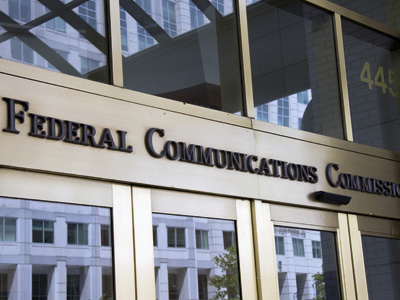Next Year Looks Busy Already in D.C.
The smarter way to stay on top of the multichannel video marketplace. Sign up below.
You are now subscribed
Your newsletter sign-up was successful

WASHINGTON — Cable operators will be busy over the next few months at the Federal Communications Commission, principally pushing back on Title II reclassification of Internet access, weighing in on the definition of over-the-top video providers, helping come up with new set-top standards and, in the case of the largest players, trying to push some major mergers over the goal line.
Telecom Act Reform: On Capitol Hill, House Republican leaders are promising to wade into a rewrite of telecom laws and to level the regulatory silos that they, and others, have suggested are so last-century.
That effort began in the House this year with a series of white papers. Washington observers predict Congress will start getting down to the details. Given that a comprehensive effort will likely take years, the Republican- controlled Congress may want to start off with a standalone FCC-reform bill.
Instead of trying for the “home run,” one cable lobbyist said, the GOP might want to take on a single component that has been hanging out there and may be doable, such as process reform.
That is, unless the Republicans try to overreach — say, by trying to limit FCC merger conditions, as they did in a previous attempt at reform. “Nobody is going to throw themselves on the track for FCC process reform,” the lobbyist added.
Former Republican FCC commissioner Robert McDowell (now a partner at law firm Wiley Rein) said it is easier to “tear down some silos in pieces rather than all at once.” Nonetheless, he said he thinks a comprehensive bill will eventually be hammered out.
“It remains to be seen exactly how the stars align, but I haven’t seen this level of seriousness to get something done in a long time,” McDowell said.
The smarter way to stay on top of the multichannel video marketplace. Sign up below.
With Republicans taking over Senate committee and subcommittee chairmanships, most expect increased FCC oversight, including more hearings and perhaps Government Accountability Office reports on relevant issues.
Net Neutrality Hangs Fire: The FCC’s new Internet- neutrality rules — either based in Section 706 authority, Title II or some combination — will likely not surface until at least February, but activists will continue to hammer the agency on the issue.
The agency won’t put out some of the recent hybrid proposals for additional public comment, attempting to avoid any further delay in deciding on new rules.
Merger Action: One net-neutrality safety valve for the FCC is the proposed merger of No. 1 cable operator Comcast with No. 2 Time Warner Cable. If the FCC allows the deal, the chairman could make adherence to the new rules a condition — as then-FCC chairman Julius Genachowski did in Comcast’s 2011 merger with NBCUniversal — whether or not they are thrown out in court.
A Comcast spokesperson declined to comment on whether or not a condition involving Title II would put the kibosh on the deal.
That merger, and telco AT&T’s acquisition of satellite-TV provider DirecTV, have already wound up in federal court. Programmers obtained a stay of the FCC’s decision to make copies of program contracts and their work product available to hundreds of third parties. The underlying suit against the decision could delay the completion of both mergers, particularly given that oral argument isn’t set until February.
Spectrum for Sale: Net neutrality is the poster issue for the FCC, but the agency will also be plenty busy tying up loose ends on its most-productive-ever spectrum auction: AWS-3, which generated over $41 billion.
There’s also the upcoming broadcast incentive auction, which affects cable operators to the extent that the FCC opens up more unlicensed spectrum for WiFi, as well as the headend retuning that will be required with the station repack. Cable operators will be compensated out of the auction proceeds.
Also on the FCC docket is the classification of linear over-the-top providers as multichannel video programming distributors for regulatory purposes. That could be a game-changer for video competition, but the FCC’s proposal is filled with more questions than answers and is more the beginning of process. So don’t look for a vote on a final order on the rulemaking proposal anytime soon. But there will likely be plenty of debate and comment at the FCC.
Set-Top Regulations: Now that the STELAR Act compulsory-license renewal legislation is law, the FCC plans to start working on a successor regime for software-based set-top box security and surfing, as well as a congressionally mandated review of what constitutes good-faith negotiations between programmers and distributors.
The FCC will need to create a set-top working group where issues will include two-way compatibility, competitive access, licensing terms, security, privacy and data collection — or tracking what people are watching.
Contributing editor John Eggerton has been an editor and/or writer on media regulation, legislation and policy for over four decades, including covering the FCC, FTC, Congress, the major media trade associations, and the federal courts. In addition to Multichannel News and Broadcasting + Cable, his work has appeared in Radio World, TV Technology, TV Fax, This Week in Consumer Electronics, Variety and the Encyclopedia Britannica.

